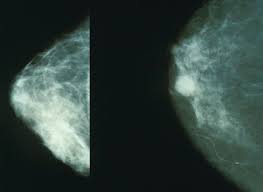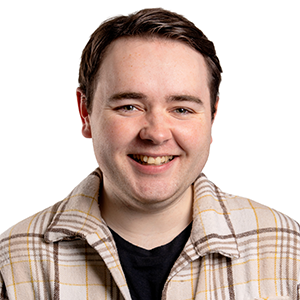
More than half the population do not know what secondary breast cancer is, despite a high mortality rate in Scotland.
That's according to Breakthrough Breast Cancer Scotland.
Known as metastatic breast cancer, the disease spreads to other parts of the body and often cannot be cured.
Approximately 1, 000 women die every year.
While 48% of respondents in Scotland surveyed answered correctly - when breast cancer has spread to another part of the body and cannot yet be cured - results revealed that 30% of respondents surveyed incorrectly believed it to be when breast cancer has been treated and has returned to the breast. A small proportion of people believed that the disease is not serious and 18% had no idea.
The YouGov survey coincides with the launch of Breakthrough Breast Cancer's new vision to Stop Breast Cancer For Good, which centres on a stronger focus into the causes of and treatments for secondary breast cancer.
Breast cancer is the most commonly diagnosed cancer among Scottish women, with around 4,500 women receiving the diagnosis each year.
James Jopling, Scotland Director at Breakthrough Breast Cancer, said:
"It is worrying that the public is unaware of how serious breast cancer really is, in order for us to put an end it and ensure that we stop the disease from taking the lives of our mothers, wives, daughters and sisters it's crucial that we rally up as much support as possible.
"There is so much more to be done in order to stop breast cancer for good, and we're finally at a point in our work where we can almost see the finishing line. This doesn't have to be a disease that kills, however without more support, more awareness, more funding and more research breast cancer will continue to be one of the Scotland’s biggest killers."
Breakthrough Breast Cancer's work, in addition to raising health awareness to help improve prevention, will focus on how it can stop breast cancer from spreading to other organs where the disease can no longer be cured and treatments are very limited.
Mani Coulter, living with secondary breast cancer who was chosen to take part in a clinical trial for the drug Kadcyla, said:
"I'm one of the lucky ones, my doctor referred me to take part in a new drug trial when my breast cancer returned and spread. I've been on Kadcyla for two years and both my family and I are so relieved that the drug is working for me and my cancer is treatable. When I first learned about my diagnoses my biggest worry was not being able to see my little girl Mya, 12, grow up.
"Sadly, I know this isn't the story for everybody and it's heart-breaking to think that children, like Mya, are growing up without their mothers. There are so many missed moments, not being able to see your child's first day at school, celebrate their 16th birthday, and for the children – not being able to make your mum a birthday card and see how happy she is to open it.
"I'm so pleased that more is being done to campaign for a better access to drugs – we’ve seen a great amount of pressure forced onto both the government and drug companies recently urging them to reach a better compromise for drug prices."


 Man, 44, seriously injured in hospital after crash between Comrie and Rosyth
Man, 44, seriously injured in hospital after crash between Comrie and Rosyth
 John Swinney announces SNP leadership bid
John Swinney announces SNP leadership bid
 Closures on A92 from TONIGHT for roadworks
Closures on A92 from TONIGHT for roadworks
 14°C
14°C
 12°C
12°C
 16°C
16°C